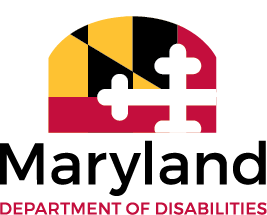You're looking towards the future. What do you want to do after high school? Work? Education? Living on your own? There is a lot to think about. Here are some resources to help you plan what you will be doing.
Work
It’s important to have work experiences while you are still in school. This experience will help you become more independent, learn new skills, and find out what you are good at. Here are some ways to get started:
Helping Teens Prepare for their First Job!
What is Your Plan for Life after High School?
Being involved in planning for your future starts with transition planning. Learn about all your options in this transition guide.What type of job you want?
Wondering what careers might be right for you? Career One Stop provides tools to explore careers. You can take an interest and skills assessment and learn about training that is needed for specific careers. Check out Career One Stop.Internships & Apprenticeships
Internships and apprenticeships can help you explore your work interests and increase your abilities. Learn more how these options could fit into your work plan.By Youth for Youth: Employment
Teens talk about finding and keeping the right job; how to write a resume and interview; things to consider about disability disclosure; and how to ask for accommodations, Learn more about employment By Youth for Youth.Starting Your Job Search: Forms of Identification You will Need
Employers will ask for your Social Security number (SSN) and an official identification such as your social security number, certified birth certificate, or Maryland Identification Card. Learn more about these forms of identification and how to obtain them.Applying for Jobs
There are a few steps involved in getting a job. Once you find a job opening that you want to pursue, you may need to fill out an application form, provide a resume, and write a cover letter. Get tips on how to create these documents.Education
For some jobs, you may need to go on for more education or training after high school. Here are some things to think about if you are planning to go onto postsecondary education.
Making My Way through College
In Making My Way through College you will find information on a variety of topics relevant to preparing for and succeeding in college and transitioning from college into the world of work.Postsecondary Education for Students with Intellectual Disabilities
Think College publishes personal stories from students, families, and postsecondary education professionals related to postsecondary education for students with intellectual disabilities.Accommodations that are Available in College
Learn about what accommodations are available after high school and how to access them. Learn AboutAccessing Accommodations After High School.Assistive Technology
Technology continues to change and improve. Keep up to date on what options are available through assistive technology.Maryland Higher Education Commission
The Maryland Higher Education Commission’s website provides guides about how elementary, middle, and high school students can prepare for postsecondary education as well as information about college searches and financial planning.Health, Money and Social Connections
Choosing a Doctor
Part of transitioning is changing your health care services from doctors who treat children and teenagers to doctors who serve adults. Learn how you can be involved in decisions about your health care and treatment.A Young Person's Guide to Health Care Transition
This guide can help you make the transition from pediatric to adult health care. Taking charge of your health care transition goes hand in hand with helping you achieve your career and life goals. A Young Person's Guide to Health Care Transition.Your Health Information is Private
The Privacy Rule, a Federal law, gives you rights over your health information and sets rules and limits on who can look at and receive your health information. Learn more about your rights.Save and Protect Your Money
You work hard for your money. Learn what to know and do from opening a bank account, using a debit card, making a budget, saving your money, taking out a loan, and more. Visit consumer.gov.Become a Stronger Self-Advocate
A self-advocate is someone who speaks up for themself. Self-advocates ask for what they need and want, and try to have as much of a say as possible in making their own life decisions. Learn how to become a stronger self-advocate.Practice Your Self-Advocacy Skills
Learning good self-advocacy skills will help you while you are in school and when you become an adult. Your IEP Meeting: A Great Place to Practice Self-Advocacy Skills.Related Resources

Forms of Identification

Applying for Jobs

Criminal Records and Employment

Your Mental Health

Understanding Your Health

Living a Healthy Lifestyle

Maryland ABLE Accounts

National Collaborative on Workforce and Disability (NCWD)

Think College

O*NET

Maryland Department of Disabilities (MDOD)


